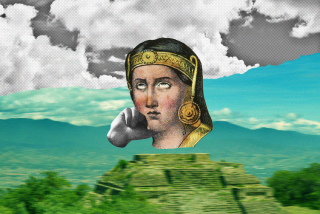Lost in America
- Share via
David Gritten’s article “Voyage of Celebrity” (Oct. 4), about the career of Gerard Depardieu and his film about Columbus, was well-written and accurate on most counts but was totally misinformed about one central historic issue.
Gritten criticizes Depardieu for not knowing more about Columbus when it is, in fact, the reporter who is ignorant of Columbus’ origins. Unlike the simplistic black-and-white history textbooks used in most U.S. schools, Europeans and Latin Americans debate, to this day, whether Columbus was Italian or Spanish. Several contradictory issues continue to cloud the origin of this historical enigma:
* At the time of Columbus’ birth, Genoa (the town that most North American history books allege was Columbus’ birthplace) was actually a disputed territory between rival principalities in Italy and Spain.
* One revisionist theory about Columbus contends that he was a Catalan nobleman from Barcelona. But as the king and queen of Spain at the time, Ferdinand and Isabella, were Castilian, and since Castille and Cataluna have been, and continue to be, rival Spanish principalities, the king and queen possibly fabricated the story about Columbus’ Italian origin. It would have been politically incorrect and probably scandalous for the Castilian king and queen to have employed a Catalan for such a high-profile and costly expedition.
* And today all of Columbus’ direct descendants live in Spain, not Italy, as they have for 500 years. One of them, a Spanish nobleman, was chosen to lead the Rose Parade this year but ended up sharing that honor with an American Indian after criticism by anti-Columbus groups.
No, history is not as simple or convenient as U.S. textbooks would like us to believe. History, like Columbus, is a gray area and an enigma. Perhaps it will never be known, definitively, whether Columbus was, in fact, a Spaniard or an Italian.
CHARLES D. ALVARE
Los Angeles


